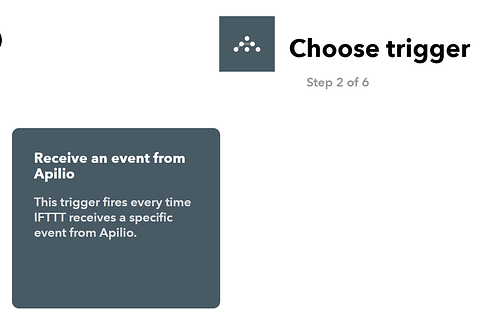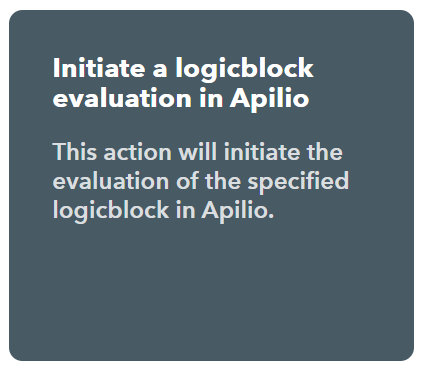![]() Apilio now works with IFTTT!
Apilio now works with IFTTT! ![]()
We are sure you are all excited about trying the new IFTTT integration, and if you are already an Apilio user, we recommend that you give it a go by migrating your existing logicblocks to the new ones, and see how easy and fast it is to setup your logicblocks and variables now ![]()
Legacy logicblocks are not going away for now, but you won’t be able to create new ones using webhooks. You will be able to modify any existing ones if needed.
The key difference is that the new IFTTT actions and triggers will pull your variable and logicblock names over to IFTTT, so you don’t have to copy and paste anymore links into webhook applets!
How to migrate your variables
You will now be able to use the IFTTT integration to update the value of your variables, so you don’t have to use the webhooks links anymore! Have a look at these articles that will show you examples on how to update:
How to migrate your logicblocks
Actions in IFTTT
You will continue to create your event names for each action you want to trigger form Apilio as usual, but then, instead of setting up a webhooks applet, you can use the IFTTT trigger when creating your applet to receive a specific event from Apilio. You will be able to see the names of your actions in a nice dropdown, so you don’t have to copy and paste names across the two platforms.
You will need to re-create your events in a new logicblock, as any existing ones you have will only work with webhooks. You can keep the same names if you wish. Create the action first in Apilio, setting up the event name, and then head over to IFTTT to setup the action applet.
Triggering a logicblock
With the IFTTT integration, your logicblock names will be available in IFTTT when you create an applet that has as a resulting action evaluating a logicblock.
This is super handy, you won’t need to copy/paste any urls to trigger your evaluations, simply choose the name of the logicblock and finish your IFTTT applet.
You can read more about logicblocks and triggering actions via IFTTT in this article:
Are your previous automations going to stop working?
Not at all, read more from @pebneter here:



